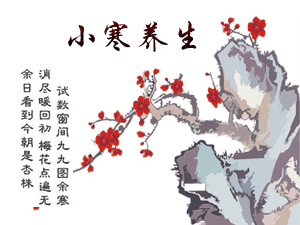Most of us enjoy a drink now and then, often when socializing with friends and family. And when you are in Oregon, you just have to try those microbrews. While modern research shows drinking can be beneficial depending on your age, health status, and how much you drink. However, its harmfulness should not be overlook, such as alcohol abuse.
But for those socializing (“party”) drinkers, hangover is a more immediate issue. Here are eight Chinese herbs that have shown good efficacy in treating hangovers.
1. Zhi Ju Zi (Turnjujube)
2. Bai Bian Dou (Lablab, Hyacinth Bean)
3. Ge Gen Hua (Pueraria Flower)
4. Ju Hua (Chrysanthemum Flower)
5. Ku Shen (Flavescent Sophora Root)
6. Gao Liang Jiang (Galanga)
7. Rou Dou Kou (Nutmeg)
8. Cao Guo (Tsaoko Fruit)
These eight Chinese herbs have shown good efficacy in treating hangover, and some since the 1000 CE, so why not give them a try next time you wanted a natural remedy for hangovers. For more details please go visit you local herbalist or acupuncturist, and Please Drink Responsibly.
But for those socializing (“party”) drinkers, hangover is a more immediate issue. Here are eight Chinese herbs that have shown good efficacy in treating hangovers.
1. Zhi Ju Zi (Turnjujube)
- Zhi Ju Zi has the ability to treat drunkenness, heat-irritability (vexation), thirst, vomiting, heat-related incontinence and constipation.
- In the “South Yunnan Materica Medica” (“Diān Nán Bĕn Căo”, ~1436 CE), Zhi Ju Zi “treats all paralyzed and numbness of the limbs, rheumatism, numbness, cure alcohol-poisoning (hangover)."
2. Bai Bian Dou (Lablab, Hyacinth Bean)
- Bai Bian Dou has the ability to strengthen the Spleen, transforms dampness, and eliminates summer-heat.
- In the “Materica Medica Sketches” (“Bĕn Căo Tú Jīng”, ~1061 CE), Bai Bian Dou “treats vaginal discharge, also treats alcohol-poisoning (hangover) and pufferfish toxin (tetrodotoxin).”
3. Ge Gen Hua (Pueraria Flower)
- Ge Gen Hua is excellent in treating hangover, wakes the Spleen and harmonizes the Stomach; alleviate thirst, indicated for excessive drinking, headache, dizziness, polydipsia (excessive thirst), vomiting, bloating, fullness, and etc.
4. Ju Hua (Chrysanthemum Flower)
- Ju Hua has the ability to disperse wind-heat, sedate the Liver and brighten the eyes, and resolving toxicity.
5. Ku Shen (Flavescent Sophora Root)
- Ku Shen has the ability to clear heat, and dry dampness, kill parasites and promote urination.
- In the “Annotated Notes on Materica Medica” (“Bĕn Căo Jīng Shū”, ~1625 CE), Ku Shen “treats hangovers, alleviates thirst, brightens the eyes, and shows great effectiveness against swine dysentery, malnutrition, and other dysentery”.
6. Gao Liang Jiang (Galanga)
- Gao Liang Jiang has the ability to disperse cold, stops pain, warms the middle and stop vomit.
- In the “New Materica Medica” (“Bĕn Căo Cōng Xīn”, ~1757 CE), Gao Liang Jiang “warms the Stomach, and dispel the cold, dissolve food stagnation and cures hangover, and treats epigastric cold-pain.”
7. Rou Dou Kou (Nutmeg)
- Rou Dou Kou has the ability to warm the Spleen and Stomach, promotes the movement of Qi, and binds up the Intestines to stop diarrhea.
- In the “Yi Hua Zi Chinese Materia Medica” (“Rì Huá Zĭ Zhū Jiā Bĕn Căo”, Date Published Unknown), Rou Dou Kou "harmonizes the middle, descends Qi, stops diarrhea and dysentery, promote appetite, dissolve food stagnation . . . cures hangover and cholera”.
8. Cao Guo (Tsaoko Fruit)
- Cao Guo has the ability to dry dampness, dispel cold, expectorant, and checks malaria.
- In the “Grand Compendium of Materia Medica” (“Bĕn Căo Gāng Mù”, ~1578 CE), cited by Gao Yu Li, “warms the Spleen and Stomach, and stops vomiting . . . cures hangover . . . .”
These eight Chinese herbs have shown good efficacy in treating hangover, and some since the 1000 CE, so why not give them a try next time you wanted a natural remedy for hangovers. For more details please go visit you local herbalist or acupuncturist, and Please Drink Responsibly.

 RSS Feed
RSS Feed